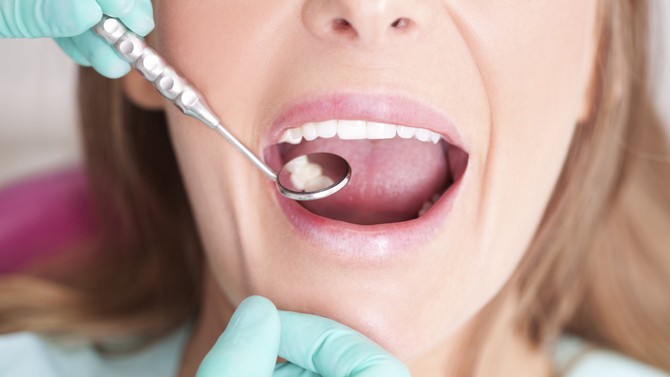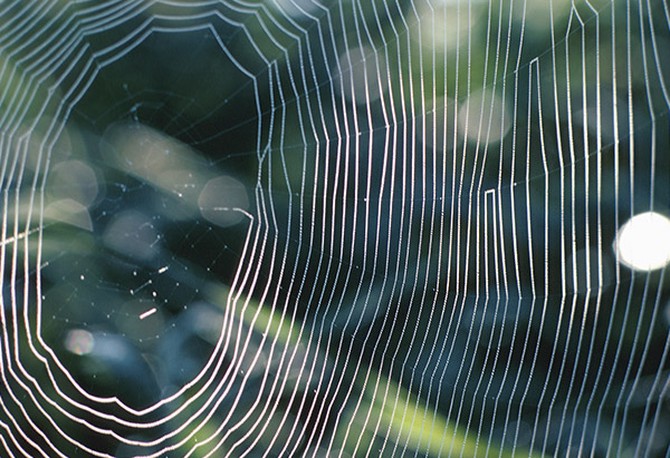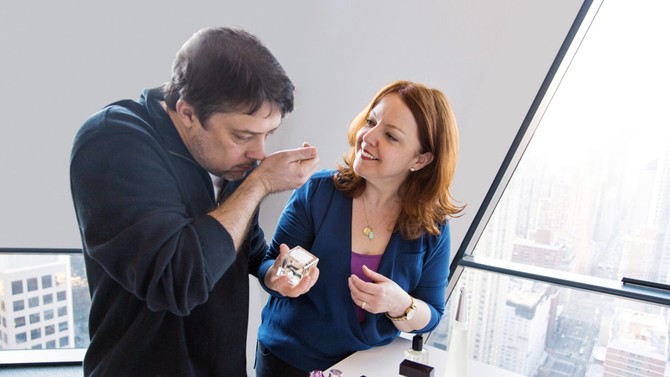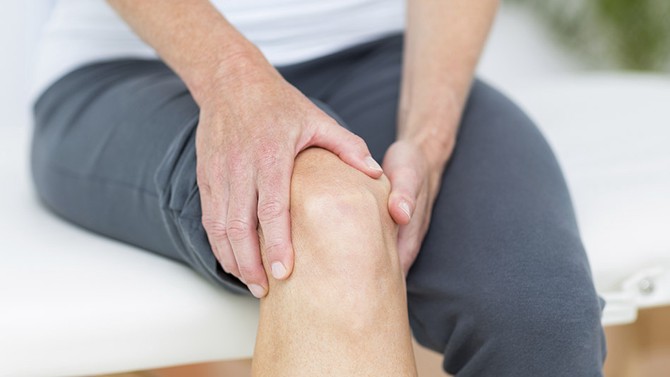13 Things Most Women Don’t Know About Their Own Bodies
These little-known facts will surprise and intrigue you. (And only one of them has to do with your you-know-what.)
By Corrie Pikul

Vaginas and Sharks Have Something in Common
And no, it's not teeth. Natural vaginal lubricant is composed of sweat, sebum, cervical mucus, exfoliated cells, urea, acetic and lactic acids, complex alcohols, ketones and (here's the kicker) squalene. Ever heard of it? This organic compound isn't exclusive to humans—it's also found in the liver of sharks. And now for something you didn't know about sharks' bodies: Squalene derived from shark liver oil is sometimes added to moisturizers and skin creams, where it acts as an emollient. What’s more, recent studies cited by the American Cancer Society have found that in the lab, shark-derived squalene seemed to protect normal human cells from the detrimental effects of chemotherapy drugs without inhibiting the drugs' effect on cancer cells.

You Listen with Both Sides of Your Brain
Researchers at the Indiana University School of Medicine used fMRI machines to monitor brain activity while men and women listened to a passage from a John Grisham novel. While most of the men showed activity exclusively on the left side of the brain (typically associated with listening and speech), most of the women showed additional activity on the right side (associated with creativity and expressiveness). This could be why women are usually credited with "hearing" what's left unsaid in a conversation.

In Photos, We Tend to Look Younger Than Men
Bad news first: Because of hormonal changes, women lose collagen in the skin much faster than men. But take heart—regardless of how rapidly women’s skin ages, men still tend to look older, says Patricia Barnes-Svarney, the author of Why Do Women Crave More Sex in the Summer? This is because men's skin is thicker and more likely to show facial lines and age spots and also because they subject it to the often-daily trauma of shaving as well as chemical baths of aftershave and astringent. On top of that, men have their own epidermal challenges to contend with: Testosterone can make their complexions look slick and oily.

Our Hormones Can Help Us Schedule Our Dentist Appointments
If you need a root canal, pull out your calendar. Estrogen makes us prone to dry sockets in the mouth, which is when a blood clot becomes dislodged from the hole where a tooth has been pulled, exposing the bones and nerves underneath. When a dry socket becomes infected, it hurts like crazy. To avoid ever experiencing this kind of pain, Barnes-Svarney suggests scheduling your extraction during the last week of your menstrual cycle (days 23 through 28), when estrogen levels are lowest. If you're pregnant (or planning on being), you should be aware that surges of estrogen can also cause gums to swell and increase the risk of gingivitis, so it's important for pregnant women to get their teeth cleaned and examined every three months or so.

Your Aversion to Spiders May Be Genetic
Do spiders make your skin crawl, despite your fondness for Charlotte's Web? This may be out of your control. Researchers at Carnegie Mellon University measured our instinctual reactions to insects by rating the expressions of fear on the faces of 11-month-old babies when they were shown separate photos of spiders and smiling people. The female babies tended to spend more time looking at the human faces than at the spider, while male babies spent an equal amount of time gazing at both pictures. Barnes-Svarney says the researchers hypothesized that women evolved to be wary of spiders, snakes and other venomous creatures so that they could protect their vulnerable children at home while the men were out hunting and gathering.

You Have a Lot of Guts
While women and men have the same basic digestive plumbing (stomach, liver, gallbladder, colon), the lower portion of the colon, called the sigmoid, tends to be longer in women. And of course, women's lower bodies are practically bulging with reproductive organs. All of this means that women have more stuff squeezed into a smaller space, says Cynthia M. Yoshida, MD, a gastroenterologist and the author of No More Digestive Problems. Our digestive systems don't have as much room to expand when troubled by excess gas, air or food, says Yoshida, which is why we are likely to experience distress in our midsections. (It's also another justification for why women deserve more bathrooms, with more privacy.)

Your Nether Region Is Unlikely to Become Tangled or Braidable
Pubic hair tends to fall out after about three weeks, says Rankin. That's just a fraction of the life expectancy of the hair on your head, which can hang around for up to seven years.

Your Obsession with Those Strappy Red Sandals Is Genetic
The gene that allows people to perceive the color red is found only on the X chromosome, and men are more likely to have mutations that compromise their ability to distinguish between red and green (making them technically more Christmas-blind than color-blind). But researchers have recently discovered that the combination of a normal gene on one X chromosome and a mutated one on the other, which occurs in about 40 percent of women, enhances the ability to see a broader spectrum of hues in the red-orange range. The scientists, who published their findings in the American Journal of Human Genetics, say that this amount of variation, especially one that benefits only one gender, is unusual in genes (nature usually weeds it out). They speculate that it may have evolved to help our ancestral female gatherers to distinguish among berries, foliage and bugs.

You Have a Wonderfully Precocious Nose
Neither gender can claim to have a better sense of smell, but women are more adept at learning to detect a scent, says Pamela Dalton, PhD, an olfactory researcher with the Monell Chemical Senses Center in Philadelphia. Dalton has shown that women of childbearing age have an impressive ability to pick up familiar odors at extremely low levels. After a month of exposure to a smell, Dalton says women will be able to sniff it out at 1/1,000th of the original concentration. She suspects this has to do with hormones, because pre-teens and post-menopausal women didn't show the same exquisite sensitivity. Dalton has also found that women are able to identify when a person—especially their partner—is stressed out just by smelling his shirt. (Perhaps this odor detection helps explain why we're so good at recognizing when our partner has had a bad day).

You Can't Handle Your Alcohol—at Least, Not as Well as Your Brother
And this isn't just because he's bigger than you. Women produce less of the stomach enzyme that breaks down ethanol. After drinking the same number of pints, women have a higher blood alcohol level than men—this is true even when controlling for size differences. The female body also has less water to dilute alcohol, leading to a stronger buzz that night...and a dryer mouth and more intense headache the next morning.

When You Hurt, You Really Hurt
Earlier this year, a big study found that when women and men are suffering from the same health conditions—cancer, back problems, infectious diseases—women are significantly more likely to say they're suffering. Researchers from Stanford University concluded that women feel pain more intensely than men, and they said that while tough-guy stereotypes may account for some of the differences, another explanation could have to do with hormones. Previous studies have shown that high levels of estrogen can trigger the brain's natural painkiller system, dampening the "ouch" signals. But when estrogen levels drop during certain parts of the menstrual cycle or after giving birth, the system is thrown off, so women will have a more intense physical response to whatever's ailing them at that time.

You're Biologically Built to Weep
Adult women cry 5.3 times a month; adult men, about 1.4 times, according to William H. Frey II, PhD, a neuroscientist and author of Crying: The Mystery of Tears. Some may assume that this is just because society is more comfortable with a weepy woman than a melting-down man, but Frey says that there are several biological factors that make women more likely to shed tears. At the cellular level, women's tear glands are anatomically different from men's, says Frey (some studies say they're bigger), and that's one of the reasons we cry so easily. He adds that the hormone prolactin, well known for its role in lactation, also regulates the development of the tear glands and aids in the production of tears. Per Frey, by the time women are 18, they have 50 to 60 percent higher levels of prolactin in their bloodstream than men do. Great: That's just in time for the frustrations of adulthood.

Your Private Parts Have a Topography Similar to a Mountain Range
Estrogen thickens the vaginal tissue and causes it to buckle slightly, creating many tiny folds called rugae (sounds sexy and vaguely European, doesn't it?). This provides more surface area for secretions and lubrication, and it also gives the vagina more stretch during intercourse and childbirth, explains Daniela Carusi, MD, the director of general gynecology at Brigham and Women's Hospital in Boston, a teaching affiliate of Harvard medical school. Estrogen decreases in women who just had a baby, are breastfeeding or are going through menopause, causing the ridges to flatten out and the vaginal tissue to become thinner and drier. This is one reason women in these life stages may experience discomfort during sex, says Carusi. (Fortunately, lubricants and topical estrogen can help.)
Next: 15 ways women are tougher, luckier, and smarter than men
Published 03/07/2012

